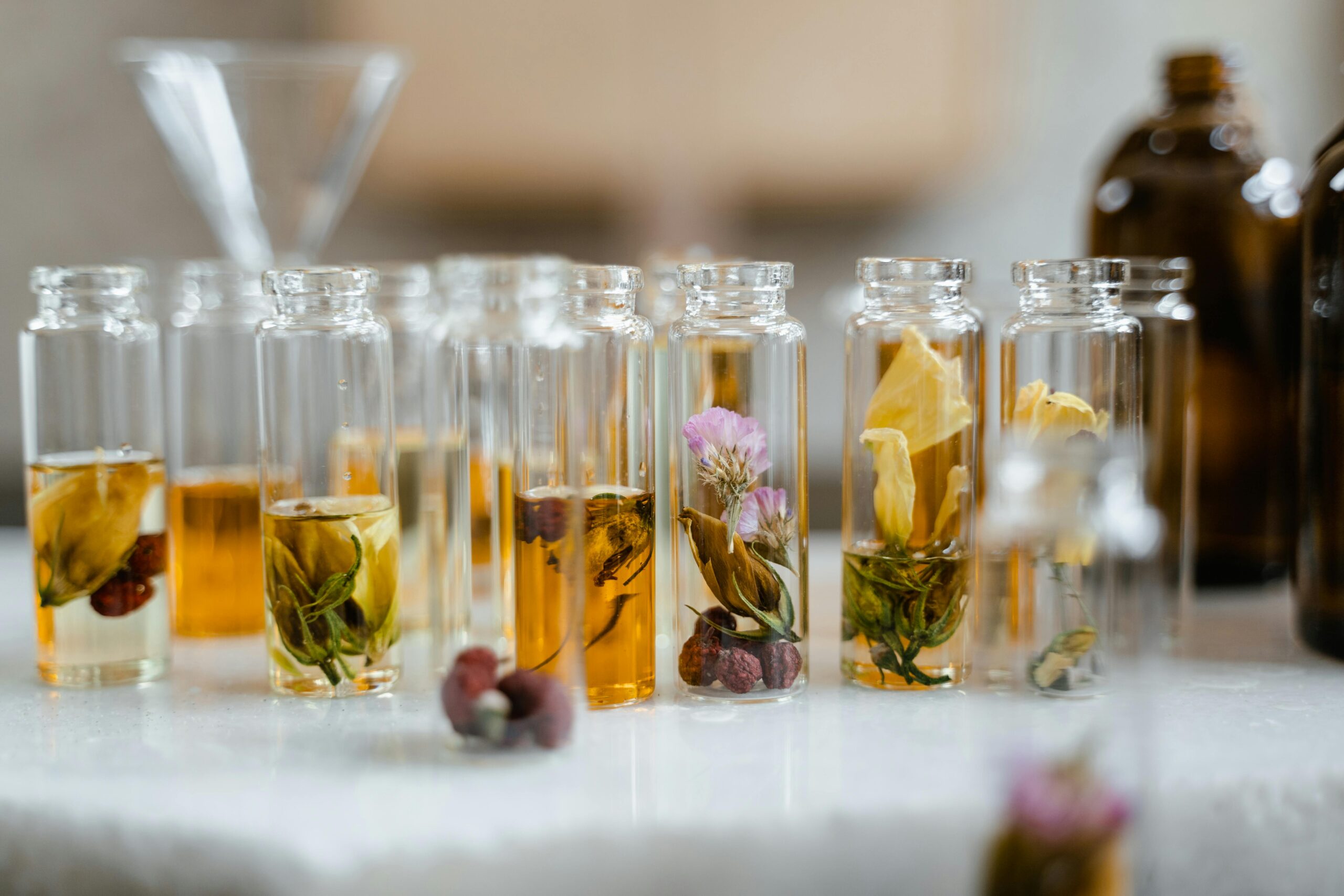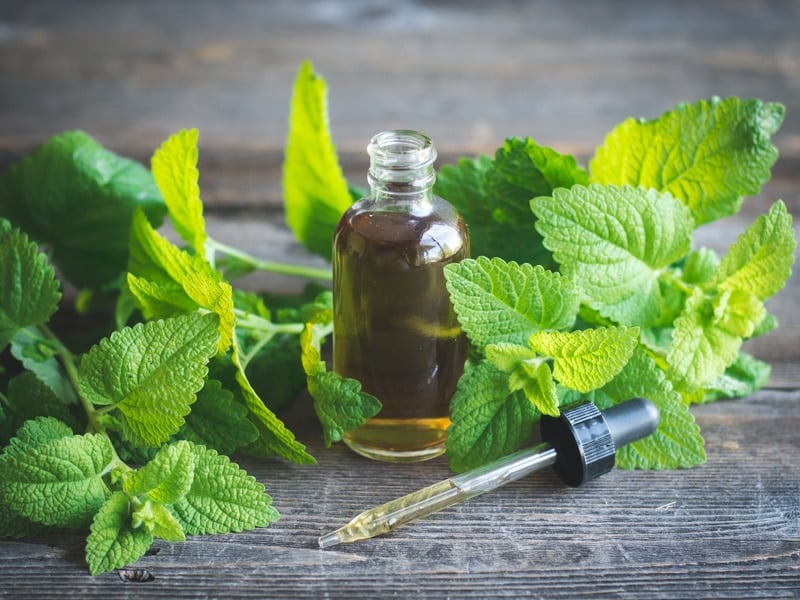Introduction: The Forgotten Secret of Herbal Medicine
When people think of herbal remedies, they often imagine teas, capsules, or dried herbs sitting in jars. What many overlook is one of the oldest and most effective preparations still used today: the herbal tincture. If you’ve ever wondered what a herbal tincture is (alcohol + water extract, preservation method), the answer lies in a process that has stood the test of centuries.
In this article, I’ll walk you through exactly what tinctures are, why herbalists like myself continue to rely on them, and how they fit into everyday health routines. With over ten years of experience working with plants, tinctures, and natural remedies, I’ll also share some practical tips and examples that can help you understand not just the “what,” but also the “why.” By the end, you’ll know how tinctures work, why they’re so effective, and how you can safely use them in your own wellness journey.
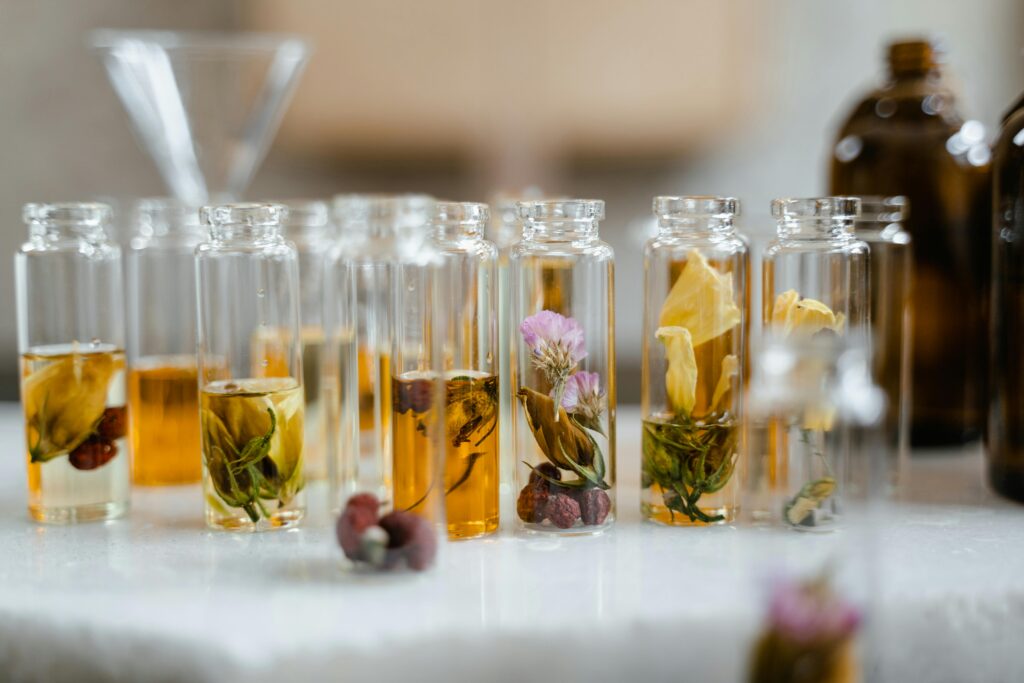
What Exactly Is a Herbal Tincture?
At its core, a tincture is a liquid extract made by steeping a plant in a mixture of alcohol and water. The alcohol acts as both a solvent and a preservative. This means it not only pulls out the valuable compounds from the herb but also keeps them stable for years.
For example, if you make a simple tea with chamomile, you’re extracting some of the compounds, but only the ones that are water-soluble. If you make a chamomile herbal tincture using alcohol and water, you also capture the constituents that dissolve in alcohol, such as essential oils and alkaloids. The result is a broader spectrum of the plant’s natural chemistry.
I often tell my students that tinctures are like “bottling the whole plant’s personality.” You’re not just getting one note of the song—you’re capturing the full harmony.
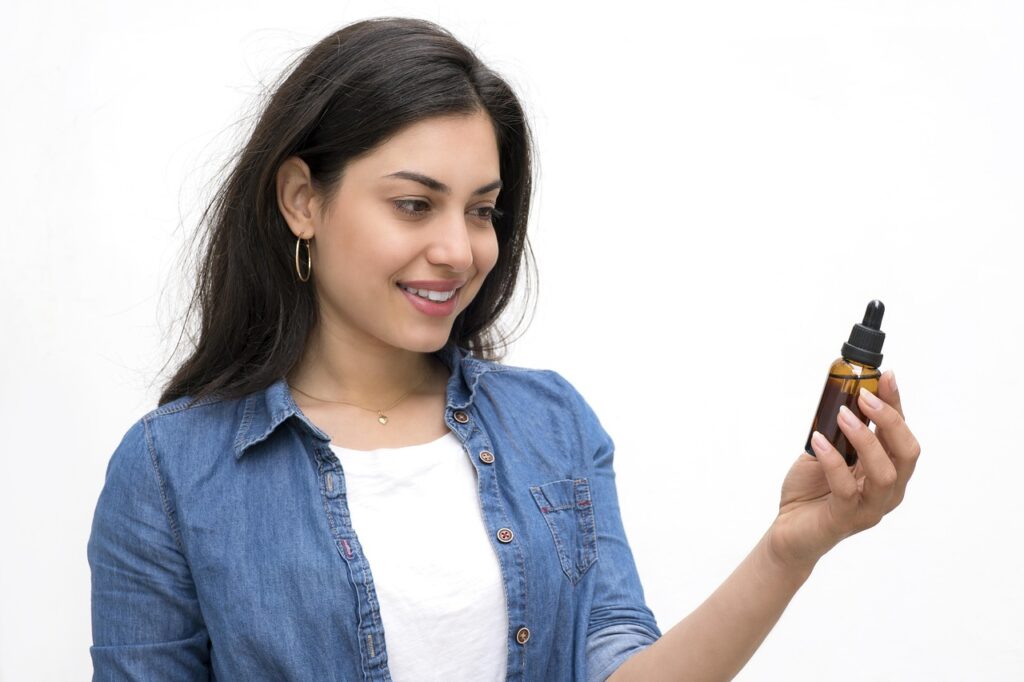
Why Alcohol and Water Are the Perfect Pair
Some people ask: why not just use water, or why not only alcohol? The truth is, both serve important roles.
- Water pulls out sugars, tannins, and many vitamins and minerals.
- Alcohol extracts volatile oils, alkaloids, and resins—compounds that water alone can’t reach.
The combination makes tinctures powerful and balanced. The alcohol percentage varies depending on the plant. A gentle leafy herb like lemon balm might do well at 30–40% alcohol, while a tough root like echinacea may need 50% or more to fully extract its medicine.
From a preservation standpoint, alcohol is unmatched. A well-prepared herbal tincture can last five to ten years without losing potency. Compare that to a dried herb, which often begins to lose its strength within a year or two.
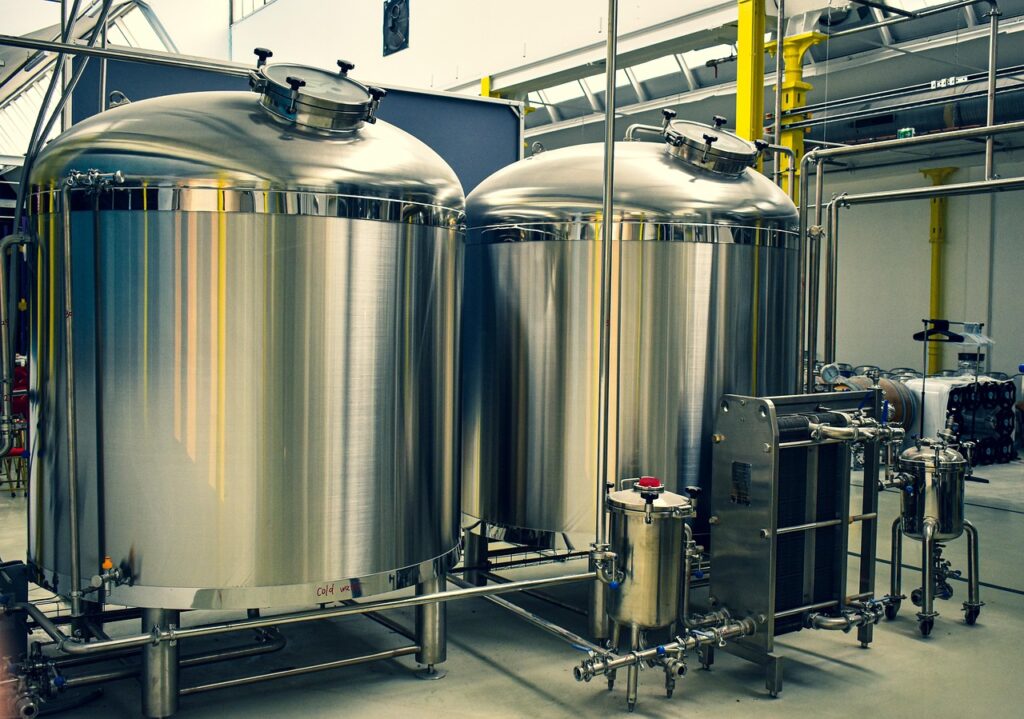
The Preservation Method: How Tinctures Are Made
Making tinctures is surprisingly simple, though it requires patience and precision. Here’s the basic preservation method I’ve followed for years:
- Harvest or source quality herbs. I prefer organically grown or wildcrafted plants to ensure purity.
- Chop or grind the herb. This increases the surface area, making extraction more efficient.
- Mix with alcohol and water. A typical ratio is 1 part dried herb to 3 parts liquid (alcohol + water). For fresh herbs, the ratio may be different to account for water already in the plant.
- Steep for several weeks. The mixture is kept in a sealed jar, shaken daily to encourage extraction.
- Press and filter. After 3–6 weeks, the liquid is strained and pressed to squeeze out every drop.
- Bottle and store. The herbal tincture is placed in dark glass bottles, labelled, and stored away from sunlight.
When I make a dandelion root tincture (Taraxacum officinale), I always notice how the sharp bitterness comes through in the final product. That bitterness is exactly what signals our digestion to “wake up” and prepare to process food more efficiently.
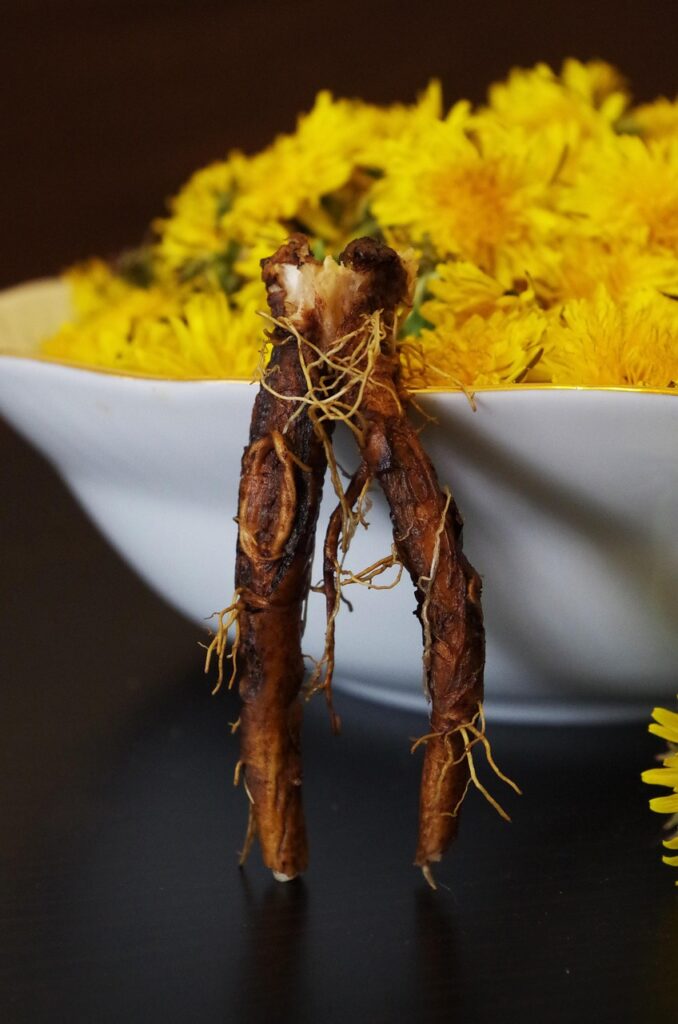
Why Tinctures Are Still Relevant Today
It’s easy to assume tinctures are an outdated remedy, but they are more relevant now than ever. Here’s why:
- Potency in a small dose: Just a few drops can equal the strength of cups of herbal tea.
- Convenience: They’re portable, don’t require brewing, and are easy to take even on busy days.
- Long shelf life: No need to worry about herbs spoiling quickly.
- Full-spectrum extraction: You get both water- and alcohol-soluble compounds.
I often carry a small bottle of lemon balm herbal tincture in my bag. On stressful days, a few drops of water help me calm down much faster than waiting for a cup of tea to brew. For me, tinctures bridge traditional herbal wisdom with the needs of modern life.

Examples of Common Herbal Tinctures and Their Uses
Over the years, I’ve worked with hundreds of tinctures, but here are a few examples that really showcase their versatility:
- Echinacea tincture: Often used at the first sign of a cold. A few drops can deliver immune-boosting compounds more efficiently than capsules.
- Dandelion root tincture: Supports digestion and liver health, especially useful before heavy meals.
- Valerian tincture: A gentle herbal sleep aid that works well when taken about 30 minutes before bed.
- St. John’s Wort tincture: Traditionally used to support mood balance (though it requires caution with certain medications).
Each of these herbs would lose some of its effectiveness if only made into teas. The tincture form ensures their broader chemistry is preserved and ready when needed.
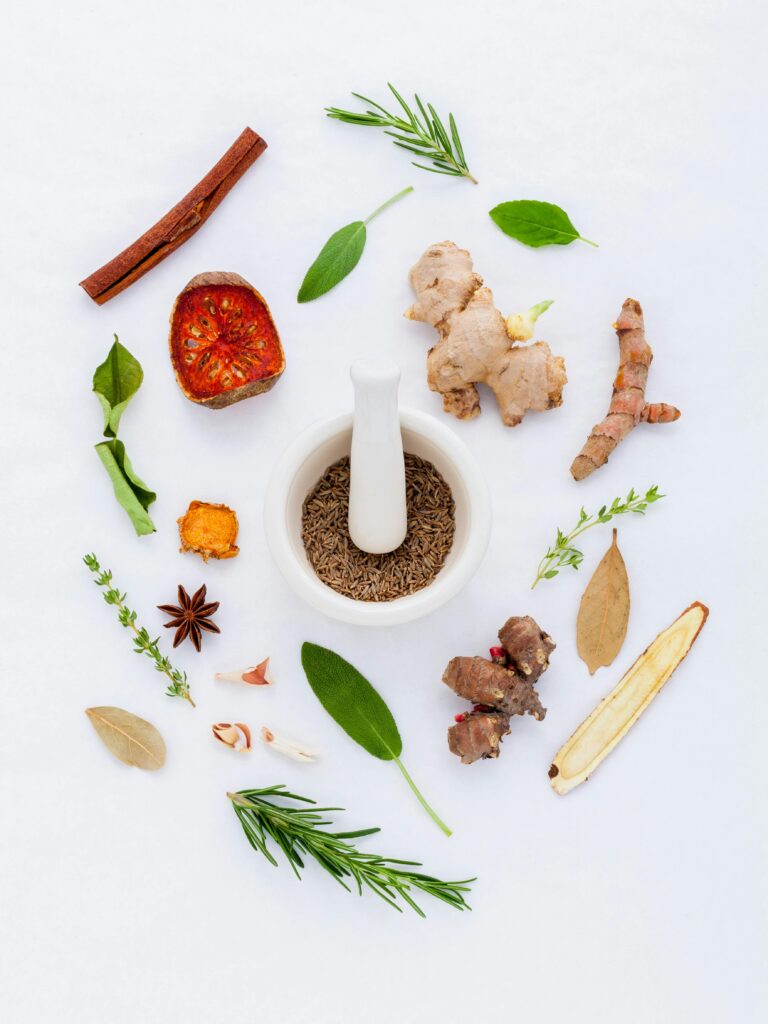
Safety and Best Practices
As effective as tinctures are, they do come with guidelines. Here are the key points I always stress to clients and students:
- Dosage matters: More isn’t always better. Most tinctures are taken in 10–30 drops, 2–3 times daily.
- Consult a professional: Especially if pregnant, nursing, or taking medications.
- Know your alcohol content: Most tinctures contain 25–60% alcohol. For those avoiding alcohol, glycerin-based extracts (glycerites) are an alternative.
- Quality is key: Always choose tinctures from trusted sources that specify herb-to-alcohol ratios and organic certification.
I once met a client who bought a “cheap herbal tincture” online that had no details about ratios, alcohol strength, or even the part of the plant used. Unsurprisingly, it didn’t work for them. After switching to a properly prepared tincture, they finally experienced the results they were hoping for. Transparency makes all the difference.
Bringing Tinctures Into Daily Life
Tinctures aren’t just for herbalists—they’re for anyone interested in natural wellness. Here are a few simple ways to integrate them:
- Add drops to a glass of water before meals to support digestion.
- Keep a travel-size bottle handy for stress, bloating, or sleep issues.
- Use tinctures seasonally—immune tonics in winter, calming herbs during stressful times.
- Incorporate them into self-care rituals: a calming tea at night, supported by a tincture to deepen relaxation.
Over the years, I’ve seen people from all walks of life—busy parents, office workers, athletes—use tinctures to find more balance. The adaptability is what makes them so special.
Conclusion: The Simple Power of a Bottle
So, what is a herbal tincture? It’s an alcohol and water extract of a plant, prepared using a preservation method that ensures potency, convenience, and longevity. More than that, it’s a way of capturing the full character of a herb and making it available at any time.
For me, tinctures represent both tradition and practicality. They carry centuries of herbal knowledge in a modern, pocket-sized bottle. Whether you’re looking for digestive support, stress relief, or a natural wellness boost, tinctures are worth exploring.
If you’re ready to experience the difference, consider adding a high-quality tincture to your daily wellness routine. Start simple—try a single herb that matches your current needs—and notice how quickly you feel the benefits.
FAQs
1. Can I make herbal tinctures at home?
Yes. All you need are fresh or dried herbs, alcohol (like vodka), and time. However, getting the right ratios and safety precautions is essential. If you’re new, it’s best to learn from a guide or take a class first.
2. Do tinctures always contain alcohol?
Most traditional tinctures do, because alcohol is the best preservative and extractor. That said, alcohol-free versions (called glycerites) are available for children, pets, or those avoiding alcohol.
3. How long does a tincture last once made?
A properly stored herbal tincture can remain potent for 5–10 years. Always store in dark glass bottles, away from heat and direct sunlight.
For more content on herbal tincture, click our link here.
